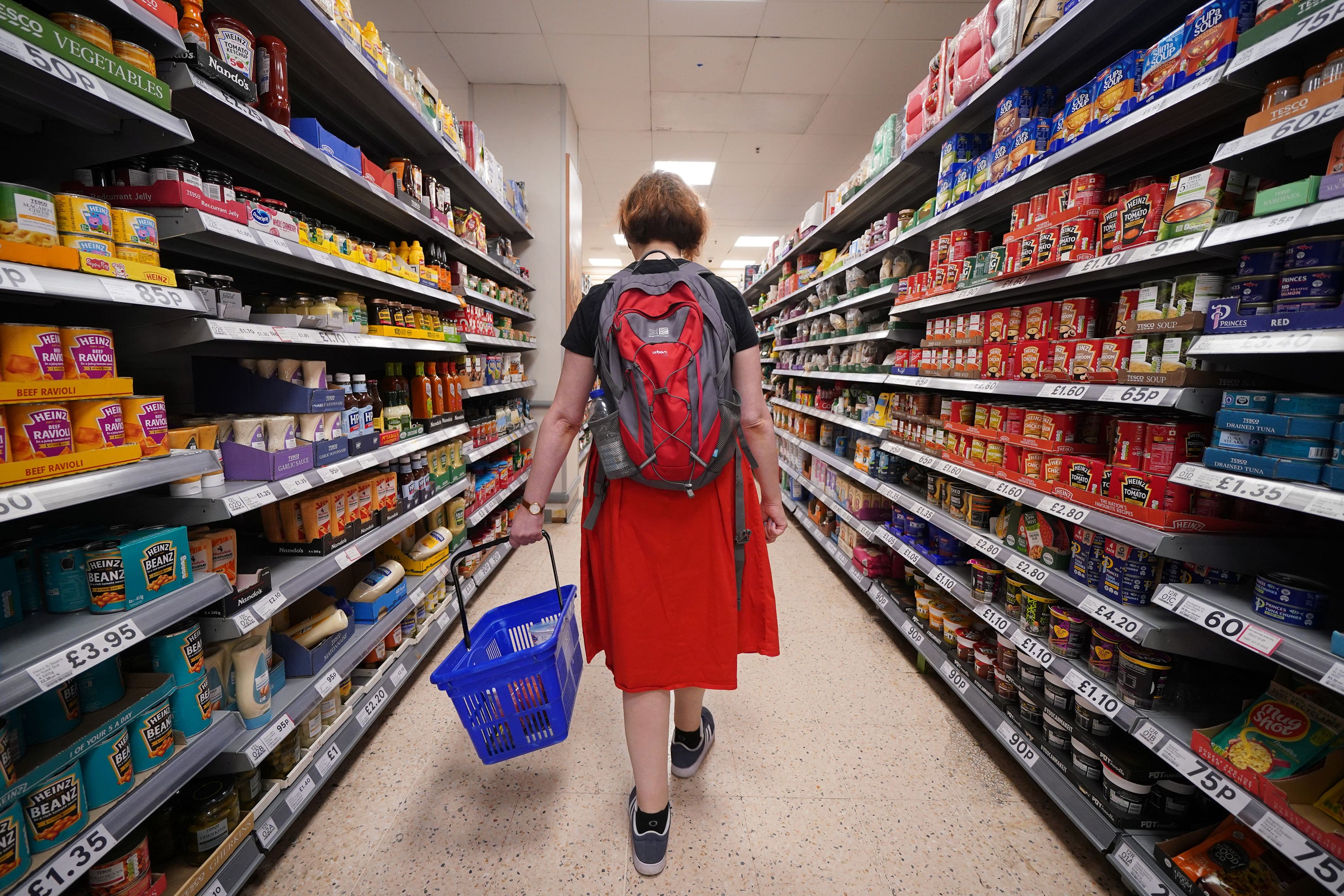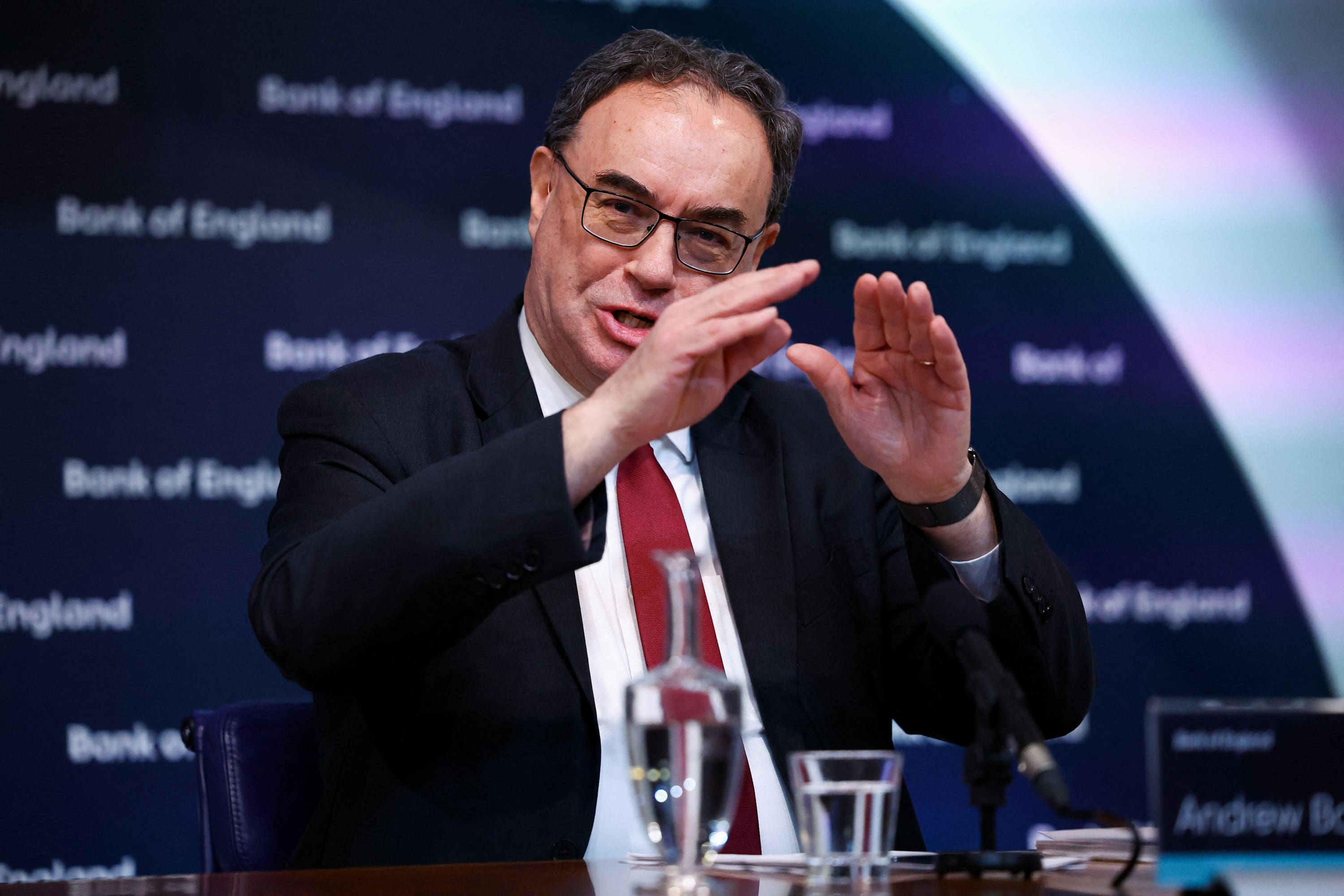What is behind the freeze in inflation and what does it mean for interest rates?
Official figures show inflation remained unchanged in January
Inflation unexpectedly remained unchanged last month as food prices fell for the first time in almost two-and-a-half years.
The Office for National Statistics (ONS) said the rate of Consumer Prices Index inflation was 4 per cent in January - unchanged from December. Experts had expected the rate to rise slightly to 4.1 or 4.2 per cent.
But what is inflation, why did it remain unchanged in January and when could the Bank of England start to reduce interest rates?
What is inflation?
Inflation is the term used to describe rising prices. The inflation rate refers to how quickly prices are going up.
If the price of something rises from £10 to £11 over a year, then that would represent annual inflation of 10 per cent.
The ONS said the main drivers behind the surprise freeze in inflation in January were lower food, furniture and household goods prices.

ONS chief economist Grant Fitzner said: “The price of gas and electricity rose at a higher rate than this time last year due to the increase in the energy price cap, while the cost of second-hand cars went up for the first time since May.
“Offsetting these, prices of furniture and household goods decreased by more than a year ago and food prices fell on the month for the first time in over two years.
“All of these factors combined resulted in no change to the headline rate this month.”
What does it mean for interest rates?
After December’s rise, financial markets trimmed their bets on an early interest rate cut, given that most experts were expecting CPI to fall to 3.8 per cent. This meant that the Bank of England kept rates at 5.25 per cent for longer.
Its remit is to keep inflation at 2 per cent and policymakers have been battling to bring CPI back down amid the cost-of-living crisis.
While inflation has fallen significantly since hitting an eye-watering 11.1 per cent in October 2022, it is still double the target.

The chancellor Jeremy Hunt and many analysts still expect inflation to fall to 2 per cent in a few months’ time.
And most economists are optimistic that the Bank will still look to cut rates in 2024, although this is unlikely until inflation comes back to the 2 per cent target.
There are no guarantees that the path of inflation will be smooth, but experts said falling food prices, hopes of a significant cut to energy bills in April and slowing UK wage growth should see inflation fall to 2 per cent over the coming months.
Martin Beck, chief economic adviser to the EY Item Club, said this could allow the Bank to cut rates possibly as soon as May.
Dr George Dibb, associate director for economic policy at the Institute for Public Policy Research, said after the latest inflation figures were published: “We can expect the Bank of England to start lowering interest rates this year.”
As markets opened on Wednesday morning traders seemed optimistic, sending the FTSE 100 up by around 0.5 per cent.

What about mortgage costs?
Mortgage rates have been falling in recent months, with many lenders starting the new year by chopping rates.
But it has been a mixed picture, with other lenders hiking theirs. Nationwide, the country’s biggest building society, revealed its mortgage rates would rise by up to 0.25 percentage points on Tuesday ahead of the inflation announcement.
It came after lenders Halifax and TSB said they were also raising rates on some of their products.
But not all lenders have increased their prices. Santander announced mortgage rate cuts of 0.16 percentage points.
When inflation falls later in the year the Bank of England is likely to cut interest rates, which will in turn bring down the cost of mortgages.
But what about worries over the Red Sea attacks?
Fears have been growing that attacks in the Red Sea, which serves as the entry point to the Suez Canal, one of the world’s busiest shipping lanes, could drive up the price of oil and gas and therefore increase inflation
The attacks on container ships by Iran-backed Houthi rebels in Yemen have forced some firms to divert vessels around Africa rather than using the Suez Canal to travel between Europe and Asia, adding transport costs and time delays.
Retailers and supermarkets have recently warned about the impact of this on stock shipments and costs if the disruption continues.
While this is not yet seen an impact on inflation yet, there are worries it could add as much as a 0.7 percentage point increase to inflation in Europe, and could push global inflation up by around 0.5 percentage points.
David Hudson, restructuring advisory partner at FRP, said: “Inflation has the potential to remain volatile – particularly if disruption in the Red Sea begins to have a more significant impact on supply chains.
“Consumer and materials-dependent sectors like retail, leisure, manufacturing and construction will be ones to watch in the coming weeks.”
Bookmark popover
Removed from bookmarks